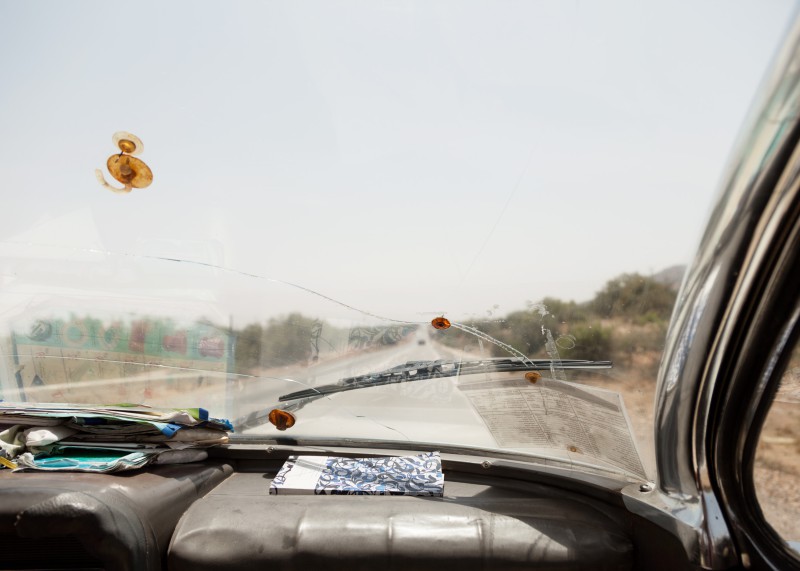
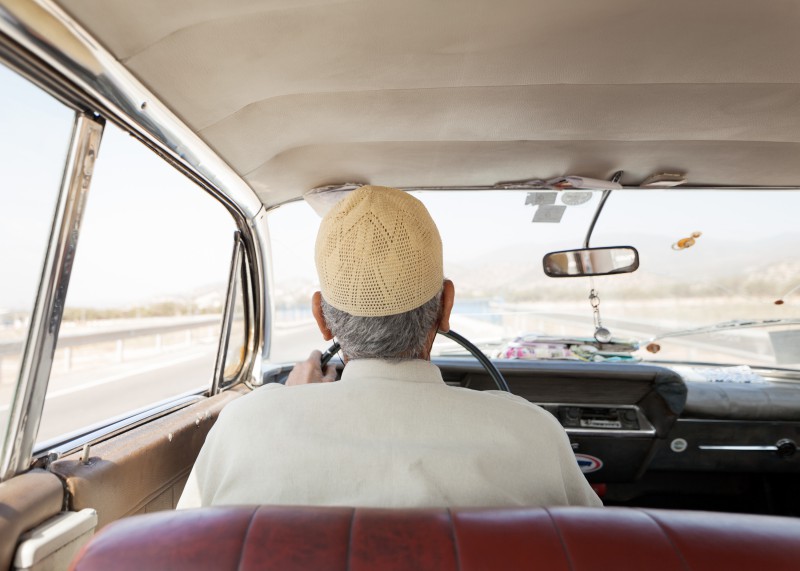
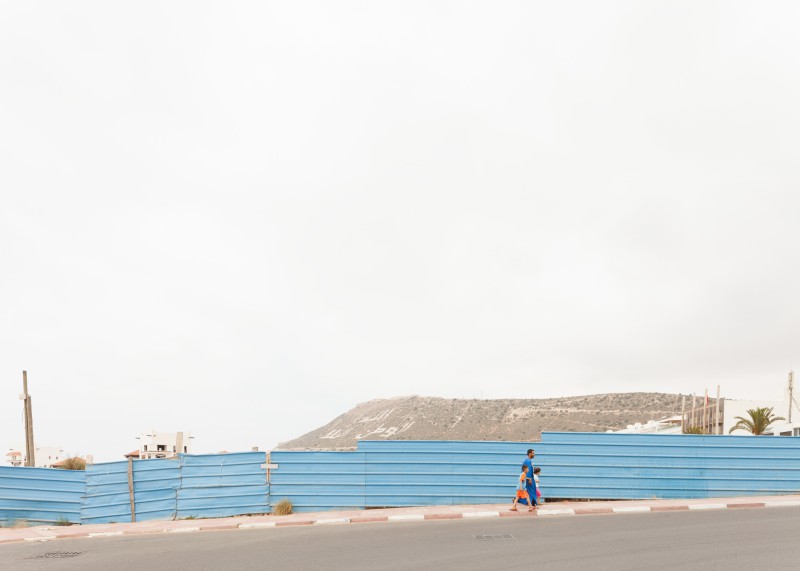
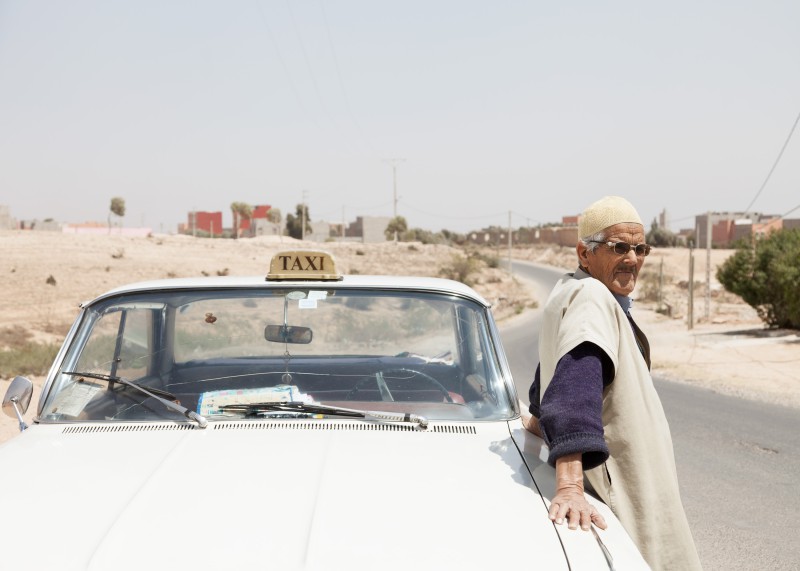
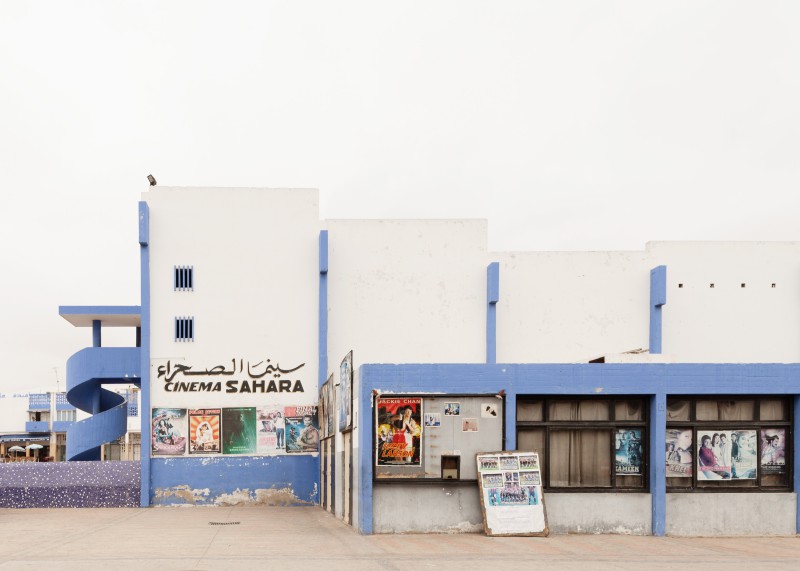
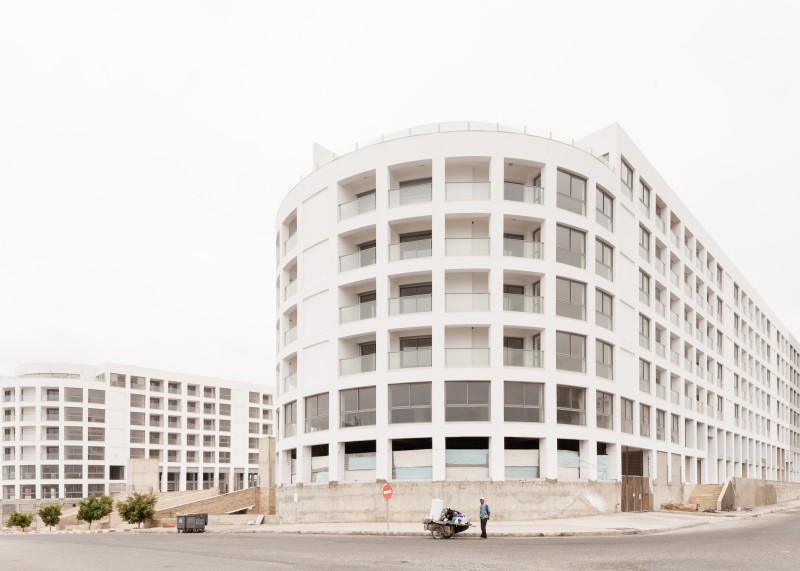
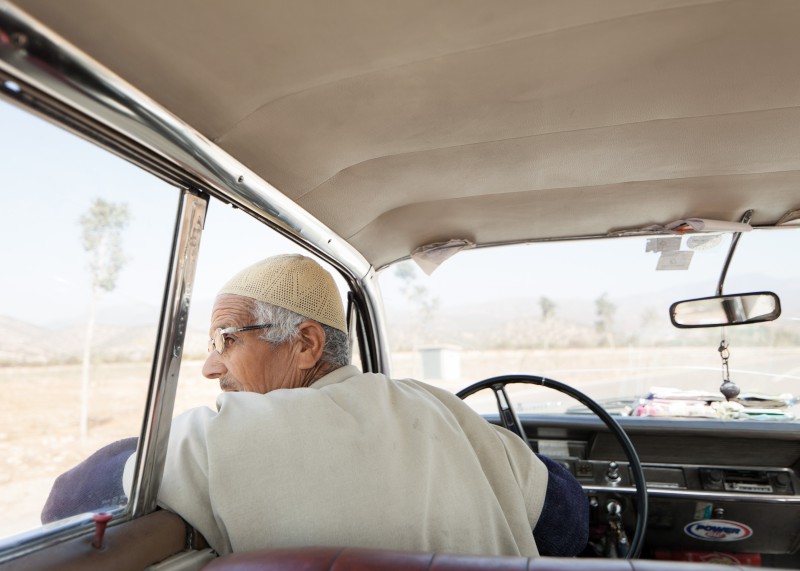
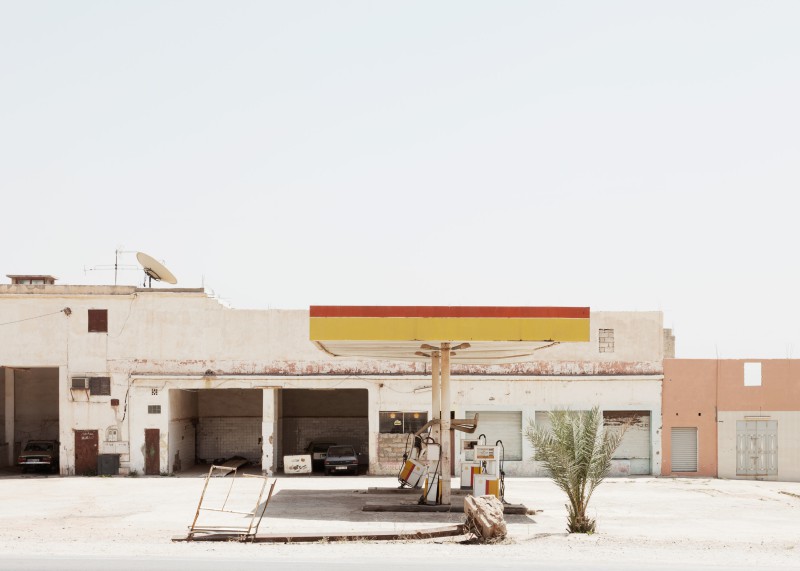
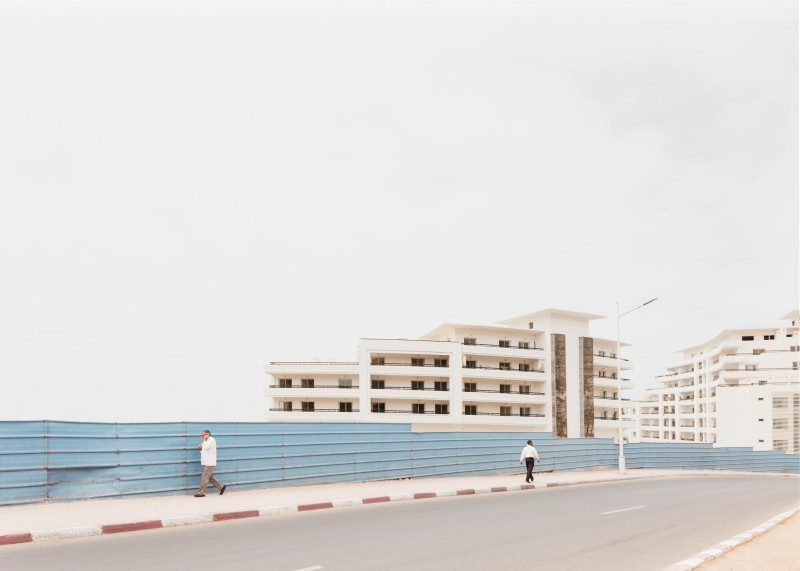
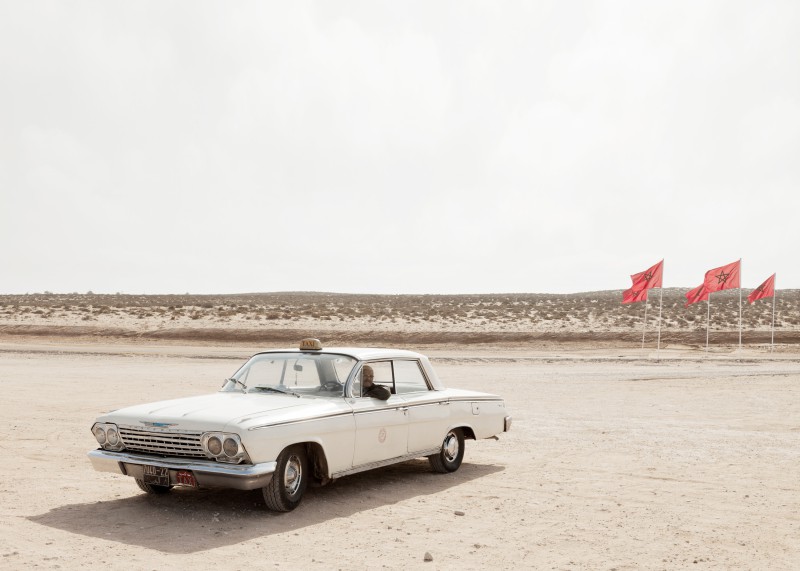
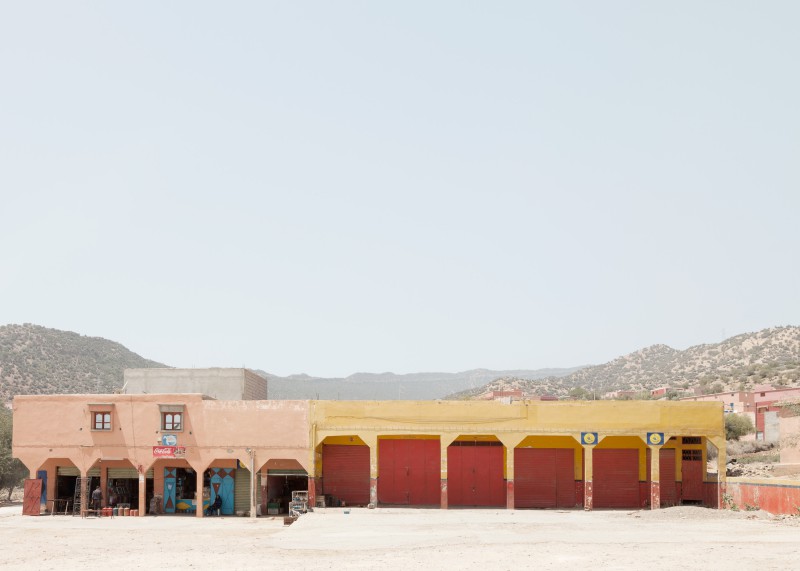
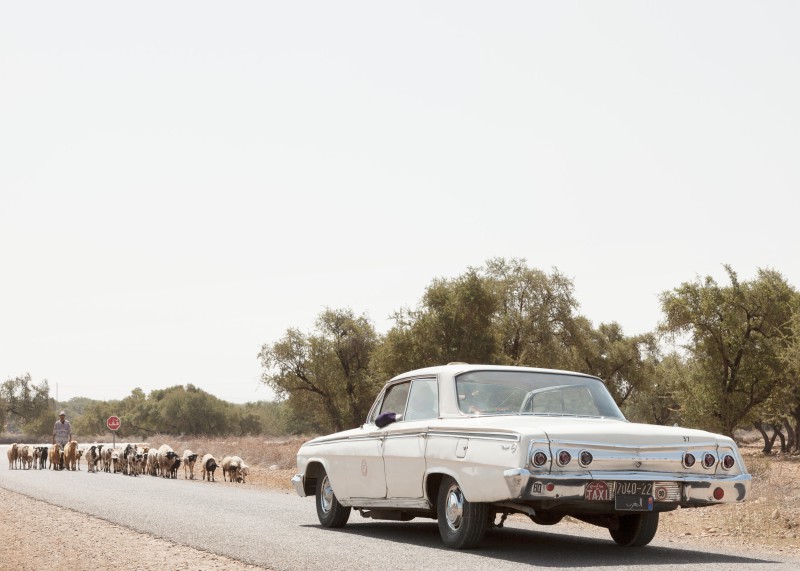
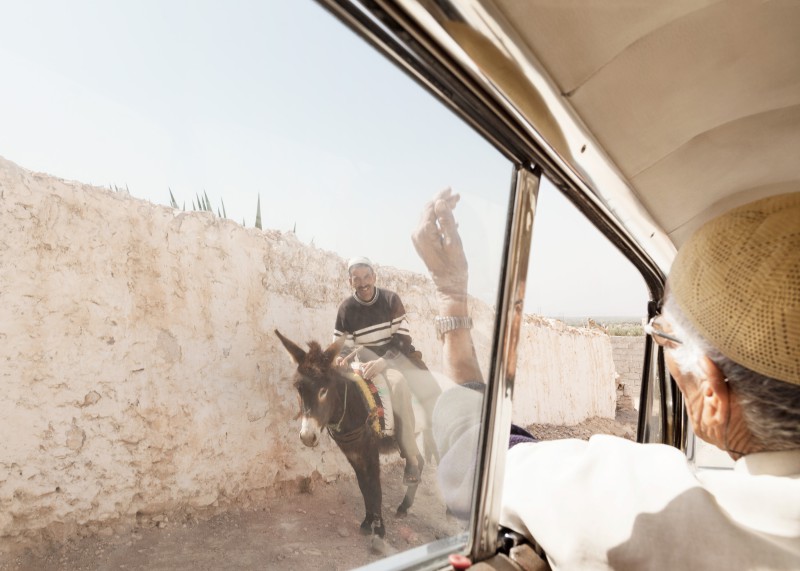

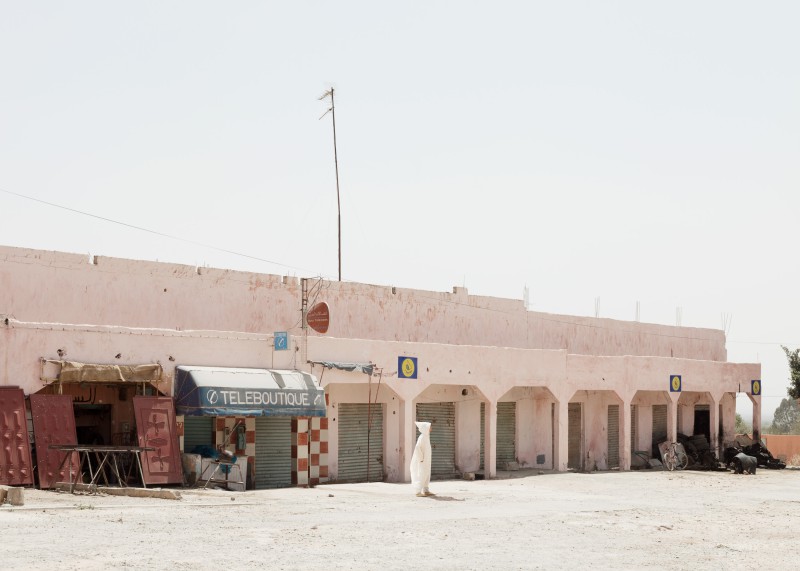
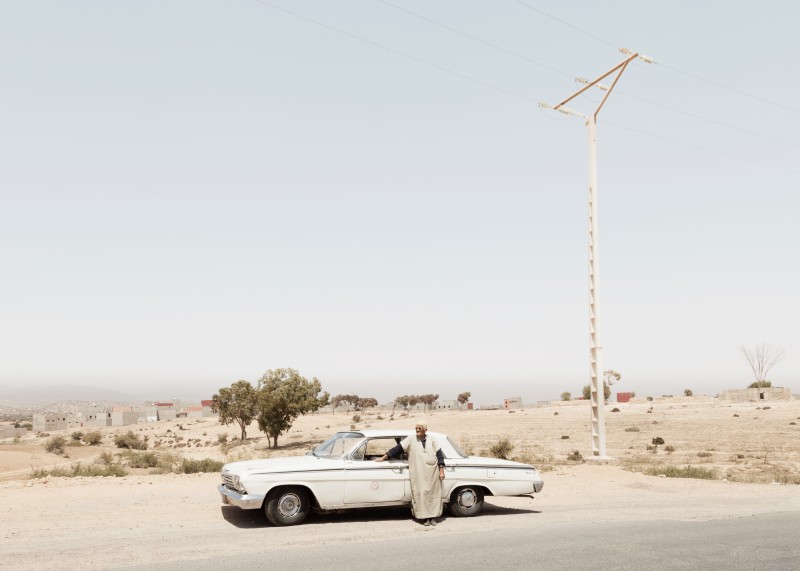
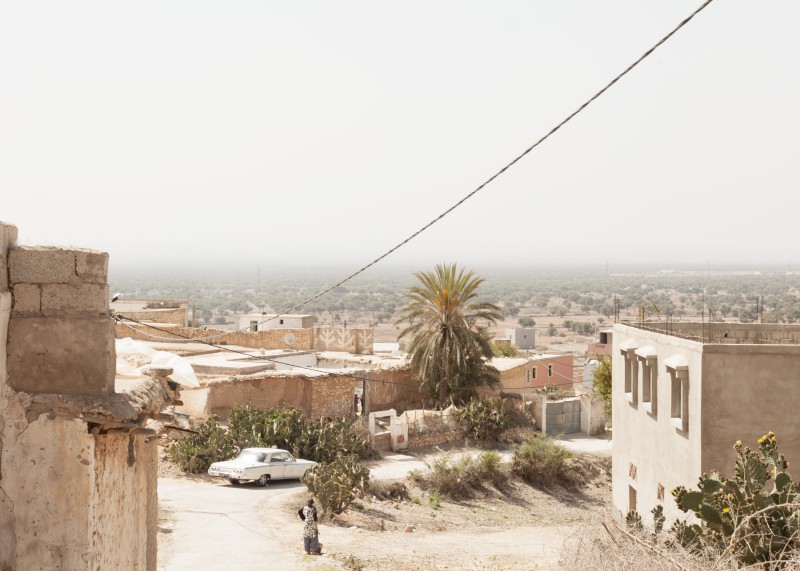
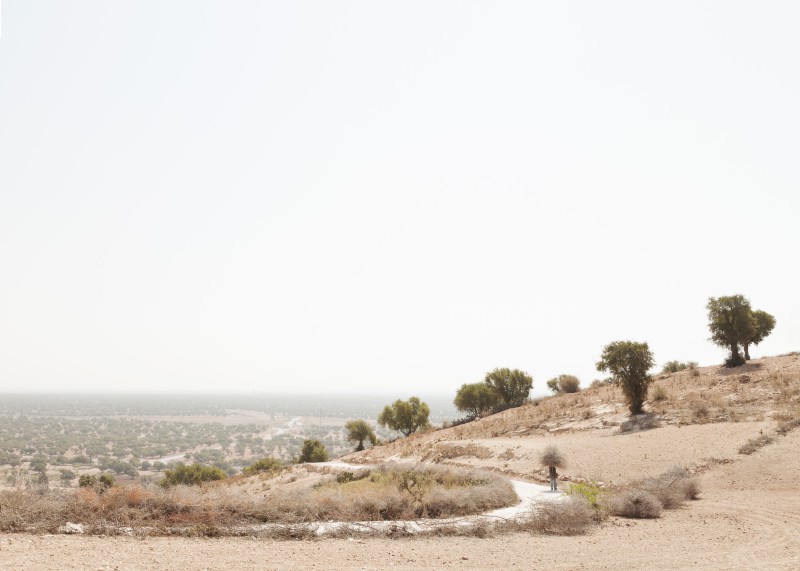
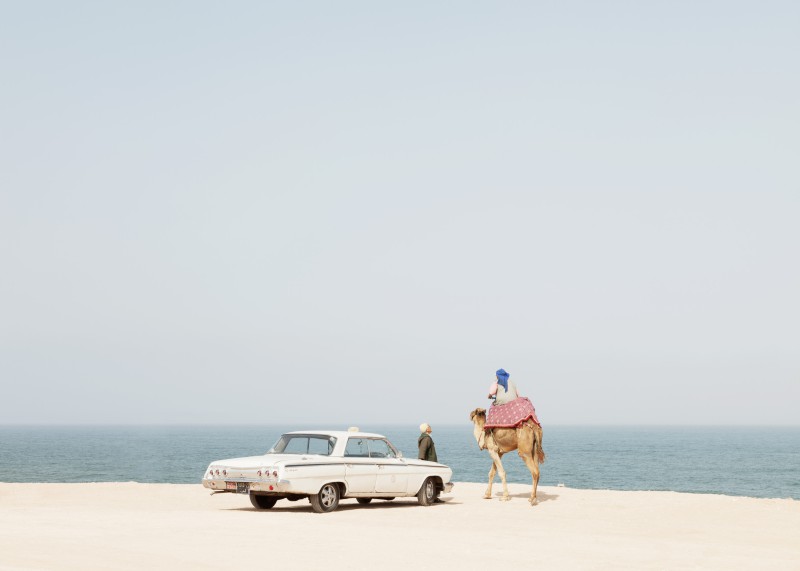
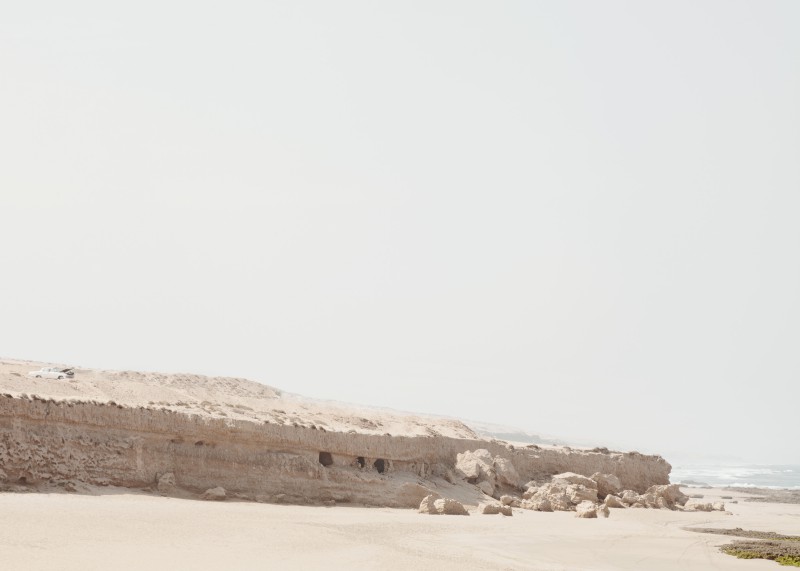
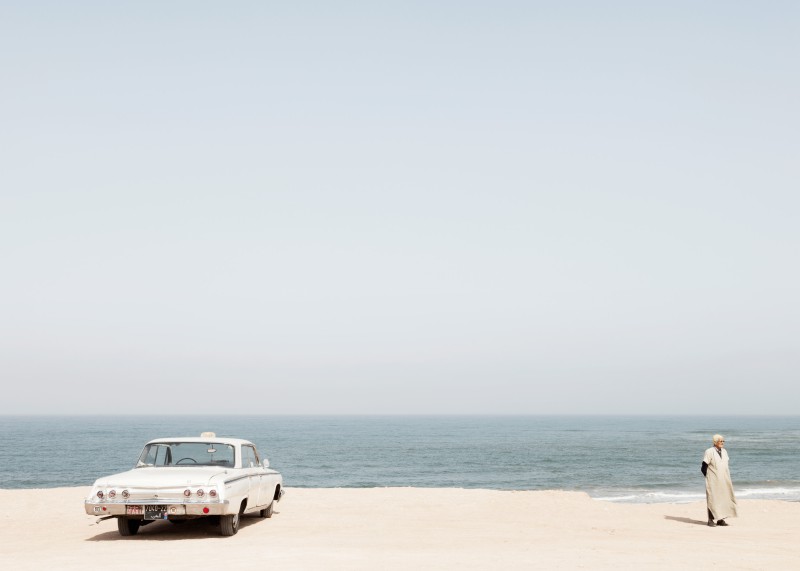
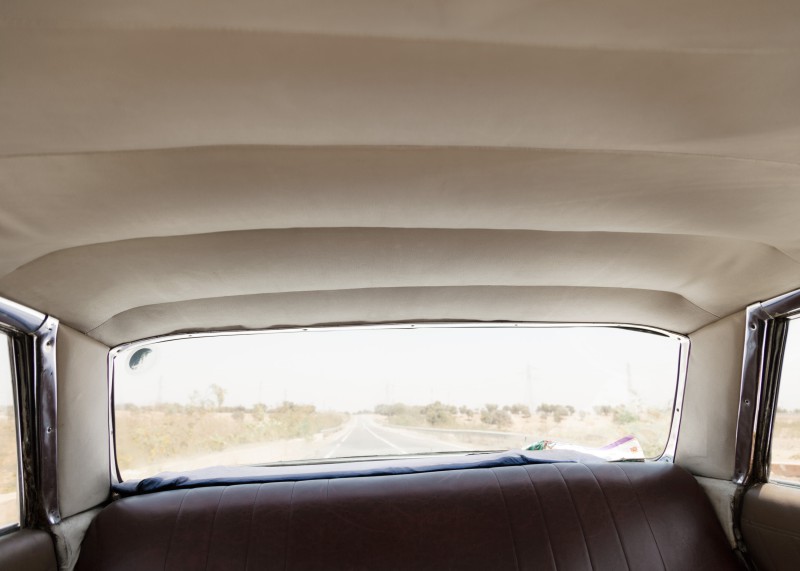
Adi has five children, his faith and a white Chevrolet Impala. Adi can be found in front of the soaring minaret tower of the Lebanon mosque, not far from the beach. Here he lies on his wooden bench under an olive tree, snoozing until someone comes and wants something from him. He is a taxi driver in the coastal city of Agadir, in the dusty south of Morocco. His colleagues transport their customers in clattering baby-blue Mercedes limousines across Boulevard Mohammed V or across the boulevard on the seafront. But not Adi. His pride and joy is parked in front of his bench: a polished white Chevy with red leather seats – the only one far and wide.
When a customer comes, Adi always gives the same reply: ‘Monsieur, I’ll drive you for as long as you want but no further than 40 kilometres.’ This is the distance he still wants to coax out of his 72-year old limousine. Any further is too risky. Adi, 45 years old, has a moustache resembling a painted-on line and a crochet cap on the back of his head. In the mornings when it is still fresh, he takes refuge under the hood of his ankle-length djellaba.
In the 1960s, Adi came to Agadir from Marrakesh after the great earthquake that swept away the entire city. Although the city changed, he has never returned: the port city of old has become a popular tourist destination, and this time it is built to be earthquake-proof. Like a ship, the limousine bobs across the dusty tarmac in the hinterland, past herds of sheep, past sand-coloured Kasbahs, past date trees. Because he can neither read nor write, he does not understand the road signs. This causes him to stop now and again during the journey, roll down his window, palaver with people, clap shoulders and ask for directions. Everyone here knows him. Unless forced to, Adi does not use the brake pedal. As if he were berthing at a landing stage, he lets the clattering car gently roll to a halt.
Then he hurriedly gets out and opens the heavy doors. You can also do that yourself, but no, he prefers to do it! Then he gingerly pushes the heavy doors closed again. Adi cares for his limousine in the same way as older women carefully apply lotion to their faces: in every period of downtime when he is waiting on a guest who has disappeared into one of the souvenir shops, he opens his boot, takes out a small clay pot of paint and a brush and paints over scratches and patches of rust. The salty sea air and the burning sun here in the south take their toll on his Chevy. When does he actually want to retire? ‘I’ll retire when Allah decides that the Chevy will give up the ghost’, says Adi, grinning. Then he stretches out on the back seat and snoozes – until his customers return.
Text: Simon Hufeisen, weltrecorder, streetphilosophy